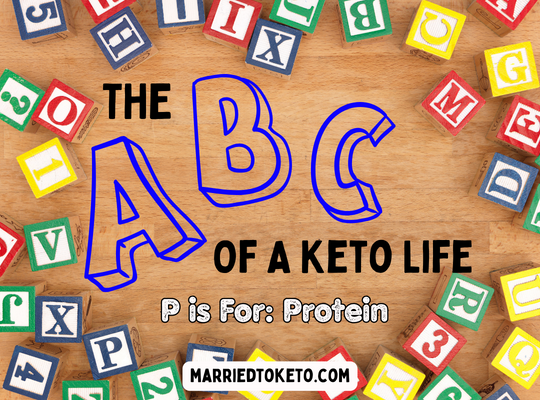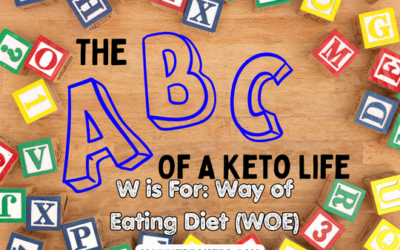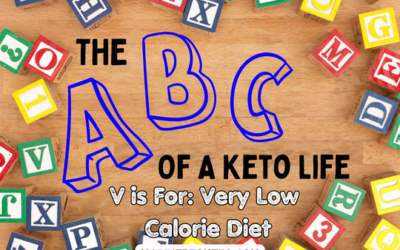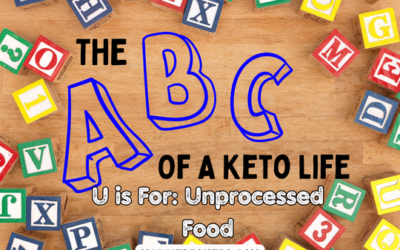What’s the first thing we learn as children? Our ABC’s. So, we thought it would be a fun idea to do the ABC’s of keto! This blog series looks at some of the main ideas and the not-so-main ideas of keto as we work our way through the alphabet. The next one in our series is: P is for Protein. What is it, and why is protein important on keto?
What Is it and Why Is Protein Important?
Protein is one of the 3 macronutrients, and the one that often gets left behind when we are talking about keto. We hear a lot about carbs and fat, because keto is a low carb, high fat diet. But where does good old protein fit in? On keto, it should be about 20% of the food we take in. It’s important to get enough protein in our diet, because it does a lot of essential work in our bodies.
What Are the Foods that Have Protein?
There are various foods that are higher in protein. Eggs, meats, poultry, fish, and shellfish are great sources. Nuts and seeds are another, although on keto, you need to be a bit careful of which ones you take in as some are higher in net carbs. We enjoy almonds and pumpkin seeds. Dairy is another good source.
A few sources of protein are not keto friendly. Lentils, peas, and beans are one source. Soy is another. They are not bad for you, they just aren’t keto. And, if you look at the food guides, you will see that the dairy and meats listed as good sources of protein are low fat. If you are not on keto, for sure look at using lower fat meat sources, like skinless chicken breast. But the dairy is the one that gets me, because to replace the taste taken out with the fat, they put in sugar. This drives me crazy. But, I digress…
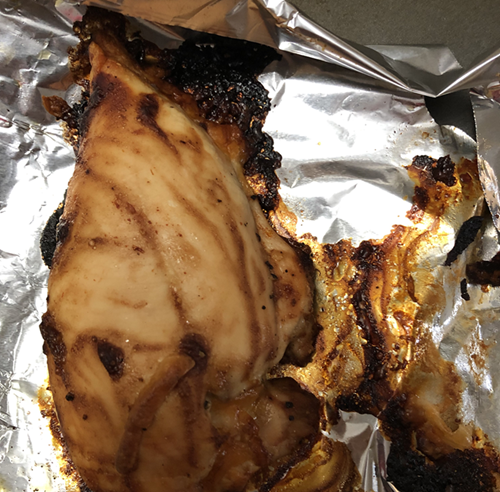
How Much Protein Should We Have?
Again, the kind of diet you are eating determines how much protein you should have. Nutritionists recommended you eat .36 grams per pound of your weight. That is for adults who are not very active and use carbs as energy. Other websites say about 10-35% of your calories should come from protein. So, if you’re eating 2,000 calories a day, you would take in between 50 grams – 175 grams of protein a day.
However, if you are keto, protein should make up about 20% of your calorie intake a day. That equals out to about 100 grams a day. And, we want to focus on foods that also provide us with some fat. This would include red meats, dark meat in poultry, and shellfish or fattier fish. Oh, and dairy products with as much fat as possible!
Why is Protein Important to My Health?
This macro is a very important part of our diet and it works hard! Protein increases your muscle mass and strength. It is the building block for muscles. It also helps your body to repair itself after an injury or surgery. That’s why athletes are always concerned about how much protein they have in their diets.
There have been some myths around protein in the past, and I want to clear them up right here and now. Protein will not harm healthy kidneys. It is good for your bones and can actually help to lower blood pressure. It’s had a rough go, but protein is good for our bodies.
But this is the key to why people who struggle with weight loss need to eat protein. Protein boosts metabolism and increases fat burning. It also reduces your appetite. When you take in protein, it decreases the level of hunger hormones your body releases and boosts the hormones that help you to feel full. So, you eat less naturally without feeling hungry and cranky. Because of this, it also reduces cravings and a desire to have late night snacks.
So, Why Is Protein Important on Keto?
I see this macro as an underdog. It helps us stay full, it gives us lots of health benefits, and yet it is rarely talked about. Now, if you take in too much protein on keto, then you fall into the Atkins category. You will be in ketosis for the first part of the Atkins diet, but then they part ways. Atkins has a totally different series of advantages and disadvantages to research. It might be worth your while if you love food high in protein.
Wendy

